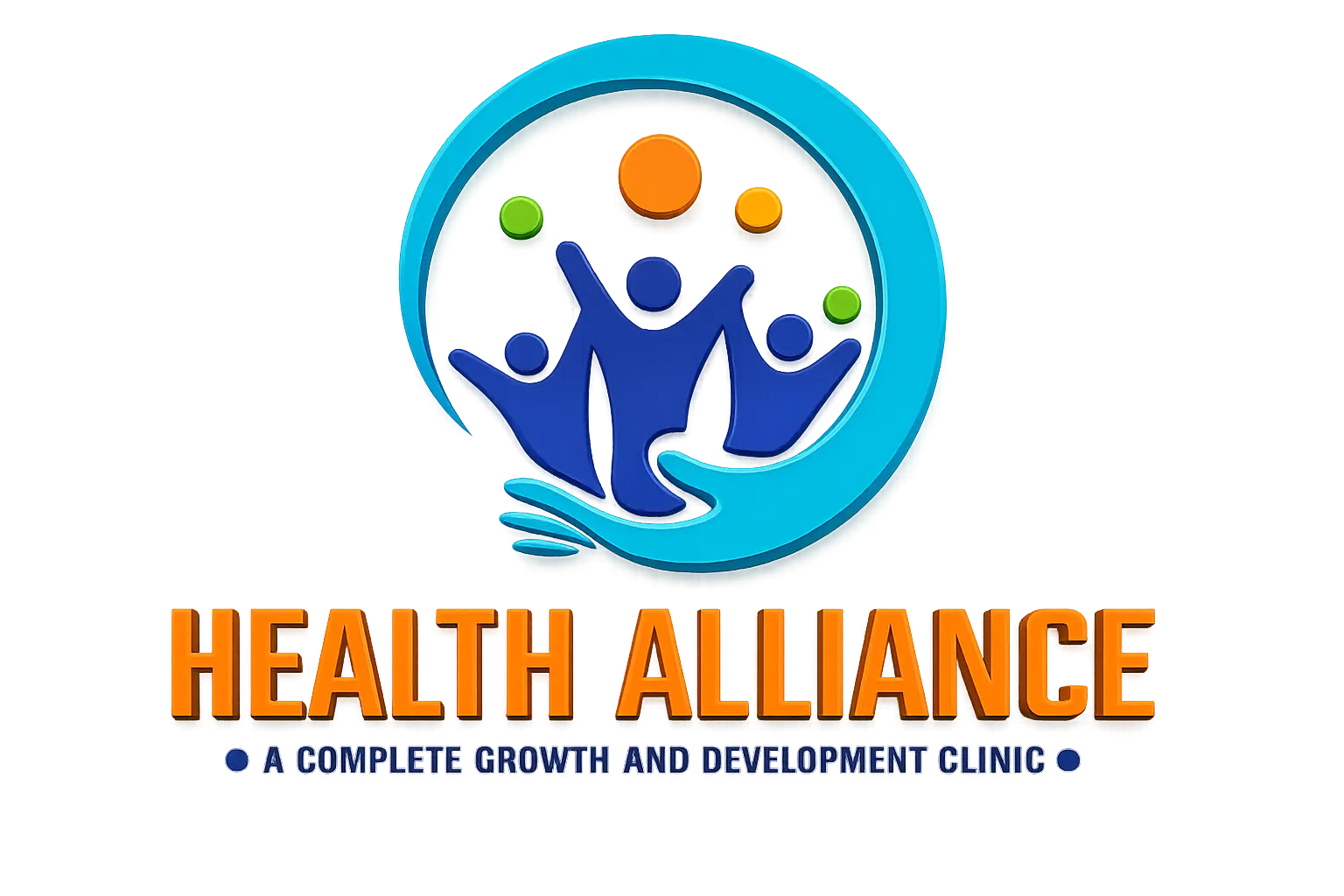Difference Between Growth and Development in Early Childhood
Health Alliance
June 7, 2025
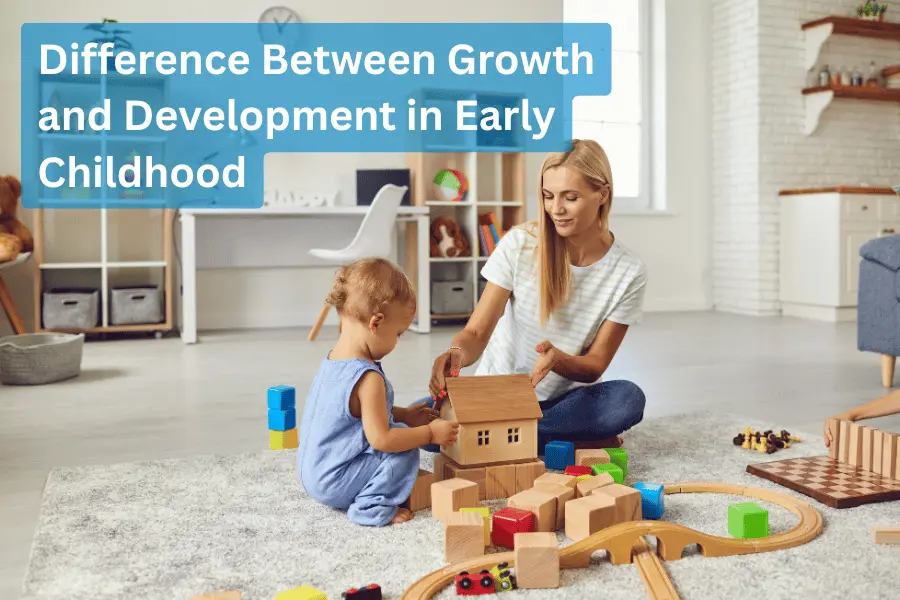
It’s important to know every parent Difference between in Growth and Development in early child because early childhood stage is the overall growth and development stage. This time prepares the ground for the next behaviour, knowledge, and health. The two most important things occurring at this time are growth and development. When we talk about growth, its means changes that can be observed and measured in a child’s body, such as an increase in height, weight, and organ size. The condition limits itself to the early years and is frequently impacted by factors such as diet and genetics.
On the other hand, development means the process by which a child’s emotional, social, cognitive, and behavioral capabilities gradually increase over time. Skills that develop over the period of lifetimes are included, such as the ability to communicate, think, interact, and control one’s emotions.
They are commonly used synonymously but describe several facets of a child’s development. Knowing the difference between growth and development helps us to understand what young children require and ensure their general health and happiness.
Defining Growth in Early Childhood
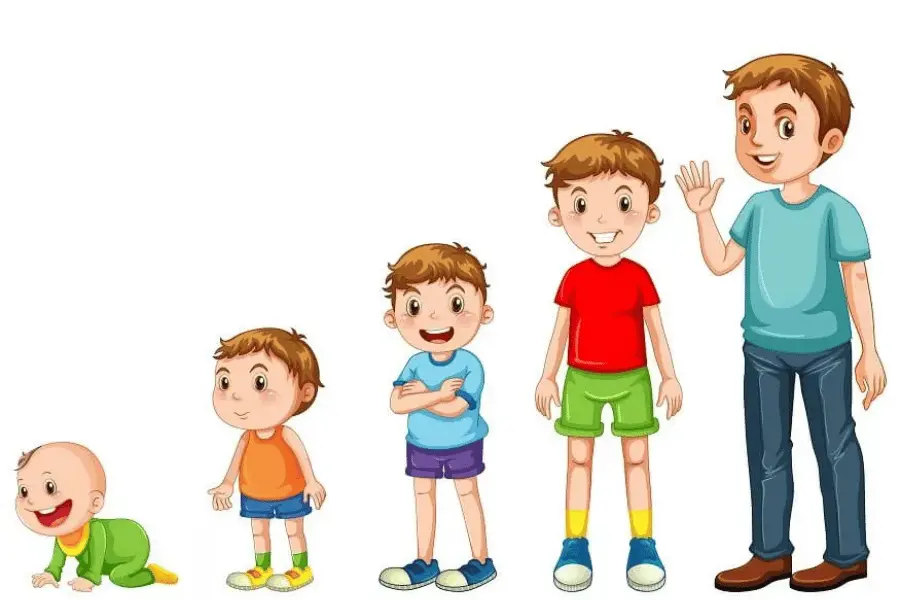
Growth in early childhood is the physical and measurable changes that occur in a child’s body as they growing. It includes changes in the size and shape of organs and bones, as well as increasing height, weight, head circumference, and overall body size. Growth is a biological and quantitative process, which means that it can be measured and tracked over time with specific numbers.
Growth happens quickly in the first few years, from birth to about 8 years old. By the time they are five months old, babies have doubled their birth weight. By the time they turn one, they have tripled it. In the same way, a child’s height goes up steadily, and different parts of the body grow in a set way.
Some important things about growth in early childhood are:
- You can use charts and clinical instruments to keep track of changes in weight, height, and measurements of the body.
- Growth happens in a particular order, like how the brain and spine grow before the arms and legs.
- Age-Specific: Babies grow the fastest, and as they get older, and then growth slows down.
- Individual Differences: Even though growth follows general patterns, each child grows based on their genetics, nutrition, and health.
Defining Development in Early Childhood
On the other hand, development is a more general term for how functional and behavioural skills change over time. This type of research looks at how a child learns to do complicated tasks and abilities over time. Cognitive, emotional, social, language and physical skills are just some of the areas that development covers.
Cognitive development involves a child’s perspective, reasoning, and problem-solving approach. Social and emotional development covers friendships, empathy building, and understanding of others. Language development is the learning and use of spoken and unspoken language. Motor development involves learning small and large motor skills, like how to hold a pencil or walk.
Development, unlike growth, can’t be directly measured by physical signs. Instead, it’s assessed on behaviour and about reaching particular developmental levels. Signs of good development include, for example, sharing toys with other children by age four or forming simple words by age three.
Key Differences Between Growth and Development
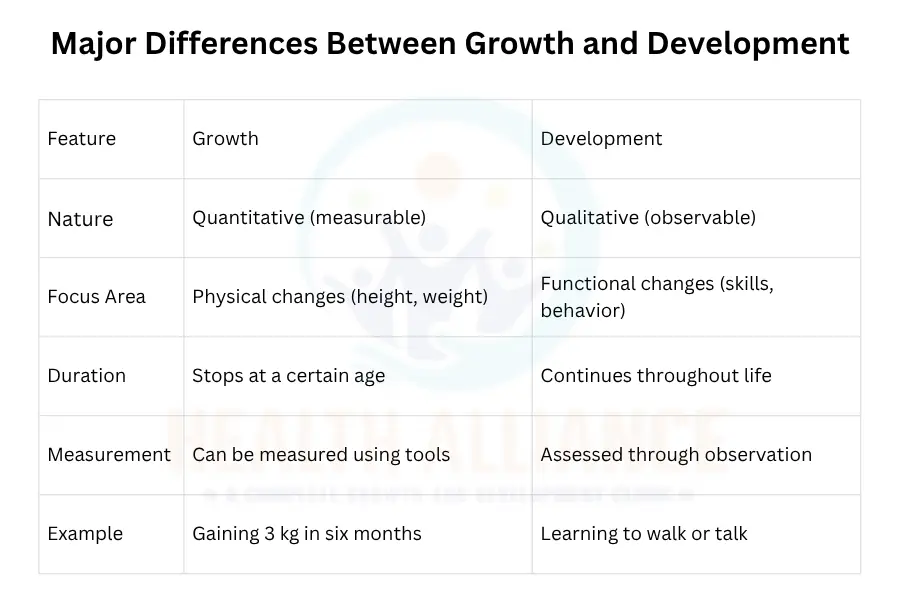
Although they occur simultaneously and influence one another, growth and development differ in many crucial respects.
Growth is physical and physiological; it depends on how big and heavy the body is. Development focuses on skills and functions and deals with things like abilities, intelligence, behaviour, and feelings.
You can count on growth. One can track it using metrics such as weight in kg, height in cm, or head size. Conversely, development is a qualitative process measured by how relationships, abilities, and behaviours are seen.
Early childhood is when people often proliferate, but growth typically stops after a period. Generally speaking, it slows down after you reach puberty. Conversely, growth occurs throughout a person’s life and alters as they grow and encounter novel events.
Though nutrition, disease, and physical exercise have a greater impact on development, genes and the surroundings can influence both. Development is affected by social contacts, a sense of safety, mental stimulation, and opportunities for learning and exploration.
Development entails learning fresh talents and behaviours that enable one to become more independent and mature. Development is becoming wiser and more capable; growth is becoming larger.
Stages of Growth and Development in Early Childhood
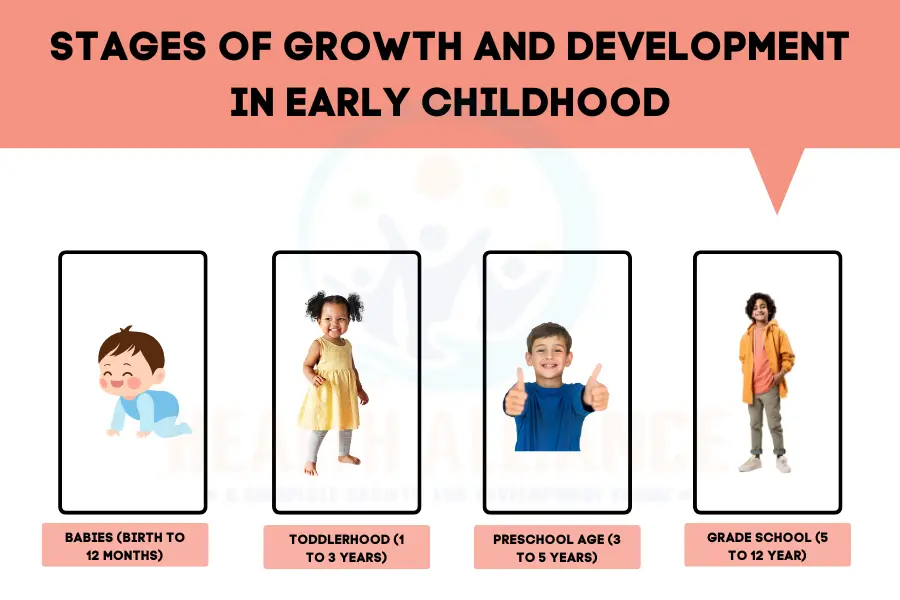
From birth to about 8 years old, early childhood is a time of rapid development. At this age, kids experience different stages of growth and development, each with its own set of milestones in the areas of physical, mental, emotional, and social health. Parents, caretakers, and teachers can better help kids at each stage of their early lives if they know what these stages are.
Babies (birth to 12 months)
Growth:
- Increase weight and height fast.
- Head grows faster as compare to other body parts.
- Development of sensory organs like sight and hearing.
Development:
- Begins to lift head, roll over, sit, and crawl.
- Responds to sounds and voices.
- Begins babbling and forms attachment to caregivers.
- Smiles and shows emotional responses.
Toddlerhood (1 to 3 years)
Growth:
- Slower but steady growth in height and weight.
- Muscle development improves mobility.
Development:
- Stand and take a few steps.
- Use at least three words besides “mama” and “dada,” and follow simple directions using words.
- Clap when excited,
- Run, kick a ball and walk up stairs (using only their feet and not climbing with their hands, too)
- Begins speaking simple words and forming short sentences.
- Shows signs of independence (e.g., feeding self).
- Use an expanded vocabulary (around 50 words), put together simple sentences and identify at least one color
- Learns through exploration and imitation.
- Socialize and play with or alongside other children
Preschool Age (3 to 5 years)
Growth:
- Height and weight continue to increase steadily.
- Improved body proportions and coordination.
Development:
- Enhances language skills; uses complex sentences and Answer simple questions like, “What are shoes for?”
- Shows curiosity and asks lots of questions.
- Begins to play cooperatively with other children.
- Pretend to be someone else (or something else, like an animal) while playing
- Develops fine motor skills (e.g., drawing, cutting).
- Comfort someone who’s hurt or sad
Grade school (5 to 12 year)
Growth:
- Consistent growth in height and weight.
- Improved muscle strength and endurance.
Development:
- Reads and writes basic sentences.
- Understands rules and follows instructions.
- Develops friendships and social skills.
- Shows increased attention span and problem-solving abilities.
- Begins to form a stronger sense of identity and self-esteem.
Reference: https://my.clevelandclinic.org/health/articles/21559-child-development
Interrelation of Growth and Development
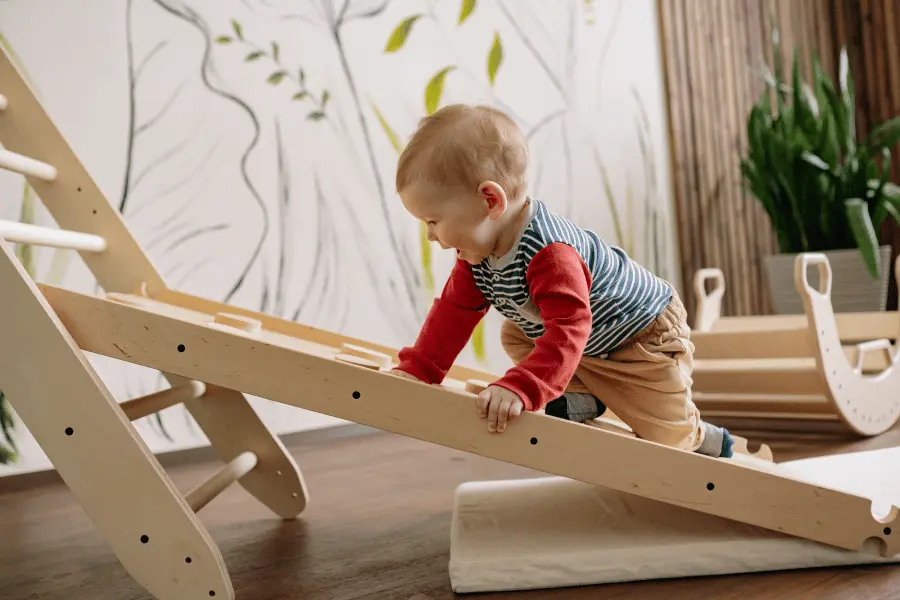
Though they are not the same, development and growth are somewhat related. Should you fail to grow appropriately, your development may suffer. For instance, a poor diet’s slowing down of a baby’s brain development could make learning a language or socializing more difficult. Delayed muscle development could also restrict a child’s exploring ability, thereby hurting their educational process.
Still, a stimulating environment that promotes mental and emotional development can also result in better physical development. Play and other activities that get you moving help your muscles grow, and your motor skills improve. So, the two processes work hand-in-hand and must be supported simultaneously for a child to develop fully.
Monitoring Growth and Development
Finding growth and developmental issues early is essential for getting help quickly. Different tools are used by paediatricians, teachers, and guardians to keep an eye on these things. Developmental screening tools examine speech, movement, social behaviour, and other developmental stages. Growth charts show how much a child has grown physically. Finding children needing more help depends much on early education programs, frequent visits, and observations.
Remember, too, that children grow and learn at various rates. There are general goals, but it’s normal for things to vary. A whole-person method that looks at a child’s physical and emotional needs ensures that no part of their growth is missed.
Importance of Supporting Growth and Development
Kids’ health, ability to learn, and social skills all get better as they grow up. A well-rounded person gets enough exercise, eats well, has friends, and is intellectually stimulated. Having regular habits, feeling safe, and being in places with lots of language all help kids’ cognitive skills, self-confidence, and good behaviour throughout their childhood.
Curiosity, talking, playing, and socializing increase kids’ mental and emotional skills. A safe and loving environment helps children feel comfortable, which is crucial for growth. Parents, guardians, and teachers help youngsters grow physically and otherwise.
Conclusion
Essential aspects of early life that might turn a person’s life path differently are growing and changing. While development improves a person’s skills, conduct, and mental understanding, growth is the rise in size and weight. Those who look after and educate small children should know the differences between these two procedures. By intentionally and balance-wise caring for both, the groundwork is set for a healthy, capable, and emotionally strong adult.
Paying attention to growth and development early on is like investing in the future; it pays off for people and society for a long time. Health alliance supports lifelong wellness by offering expert guidance, personalized care, and trusted health resources. Empowering families to nurture children’s growth, development, and well-being through reliable, accessible, and holistic healthcare solutions.

